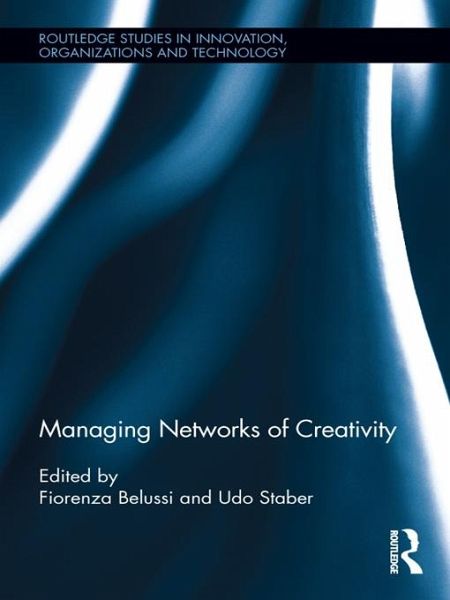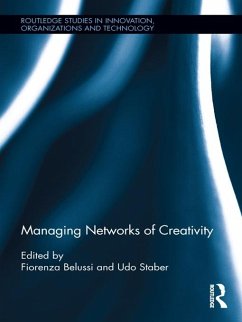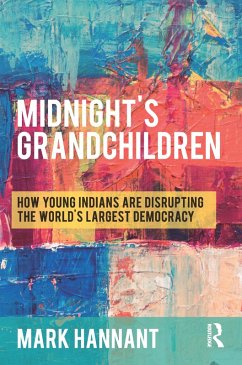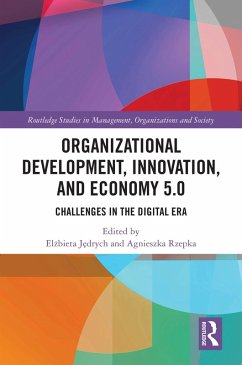
Managing Networks of Creativity (eBook, ePUB)
Versandkostenfrei!
Sofort per Download lieferbar
46,95 €
inkl. MwSt.
Weitere Ausgaben:

PAYBACK Punkte
23 °P sammeln!
The aim of the Managing Networks of Creativity is to improve our understanding of creativity and the management of creativity, as discussed in the fields of management (including strategic management, organization science, organizational behaviour, and entrepreneurship), economics, sociology, regional studies, and political science.While research on creativity has made several important contributions to the theoretical literature, little attention has been paid to the development and testing of formal theoretical models, especially in those cases where creativity is the result not so much of i...
The aim of the Managing Networks of Creativity is to improve our understanding of creativity and the management of creativity, as discussed in the fields of management (including strategic management, organization science, organizational behaviour, and entrepreneurship), economics, sociology, regional studies, and political science.
While research on creativity has made several important contributions to the theoretical literature, little attention has been paid to the development and testing of formal theoretical models, especially in those cases where creativity is the result not so much of individual behaviour than the outcome of collective efforts, connecting individuals in organizations, social networks, projects, geographic clusters, and so forth. The proposed volume includes studies, both conceptual and empirical, which, as a whole, "deconstruct" the concept of creativity and the management of creativity by identifying specific situations, contexts, firms, clusters, and districts in which creative processes evolve. The reader is provided with in-depth discussions of theoretical issues and a range of descriptive cases and survey data that the authors use to explore or test concepts and models. Overall, the volume aims to integrate current debates concerning the role of creativity (and innovation) in economic and social development.
While research on creativity has made several important contributions to the theoretical literature, little attention has been paid to the development and testing of formal theoretical models, especially in those cases where creativity is the result not so much of individual behaviour than the outcome of collective efforts, connecting individuals in organizations, social networks, projects, geographic clusters, and so forth. The proposed volume includes studies, both conceptual and empirical, which, as a whole, "deconstruct" the concept of creativity and the management of creativity by identifying specific situations, contexts, firms, clusters, and districts in which creative processes evolve. The reader is provided with in-depth discussions of theoretical issues and a range of descriptive cases and survey data that the authors use to explore or test concepts and models. Overall, the volume aims to integrate current debates concerning the role of creativity (and innovation) in economic and social development.
Dieser Download kann aus rechtlichen Gründen nur mit Rechnungsadresse in A, B, BG, CY, CZ, D, DK, EW, E, FIN, F, GR, HR, H, IRL, I, LT, L, LR, M, NL, PL, P, R, S, SLO, SK ausgeliefert werden.













